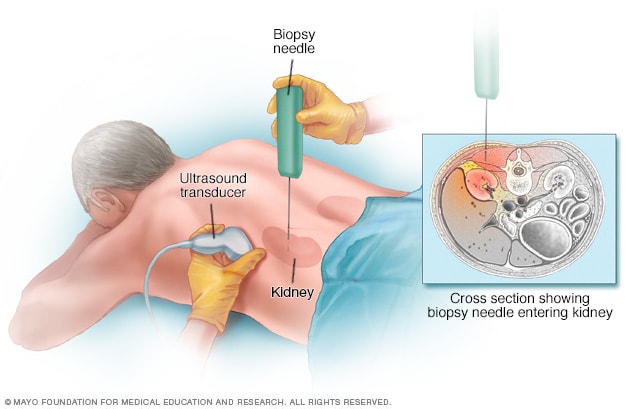Understanding Proteinuria
Proteinuria occurs when the kidneys fail to filter proteins effectively, allowing them to leak into the urine. This can result from various conditions, including diabetes, hypertension, and kidney diseases. Identifying the underlying cause is crucial for effective management, but natural methods can complement medical treatments.
Natural Methods to Reduce Protein in Urine
Several natural strategies can help in reducing protein levels in urine. These methods focus on improving kidney function and overall health.
1. Dietary Adjustments
- Low-Sodium Diet: Reducing sodium intake can help lower blood pressure and decrease the strain on the kidneys. Aim for less than 2,300 mg of sodium per day.
- Plant-Based Diet: Consuming more fruits, vegetables, and whole grains can reduce the workload on the kidneys. Plant-based proteins are generally easier on the kidneys compared to animal proteins.
- Avoid Processed Foods: Processed foods often contain high levels of sodium and preservatives, which can worsen kidney function.
2. Hydration
Staying well-hydrated is essential for kidney health. Drinking adequate water helps in flushing out toxins and reduces the concentration of proteins in the urine. Aim for 8-10 glasses of water daily, but consult your healthcare provider for personalized advice.
3. Regular Exercise
Engaging in regular physical activity can help control blood pressure and improve overall health, indirectly benefiting kidney function. Activities like walking, swimming, and yoga are gentle on the body and can be beneficial.
4. Herbal Supplements
- Green Tea: Known for its antioxidant properties, green tea can support kidney health.
- Turmeric: Contains anti-inflammatory compounds that may help in reducing kidney inflammation.
- Astragalus: This herb has been shown to help reduce protein in the urine and boost overall kidney function.
Always consult with a healthcare provider before starting any herbal supplements.
5. Stress Management
Chronic stress can negatively impact kidney function. Practices such as yoga, meditation, and deep-breathing exercises can help in stress reduction, thereby supporting kidney health.
Comparison of Natural Methods
| Method | Benefits | Considerations |
|---|---|---|
| Low-Sodium Diet | Reduces blood pressure, kidney strain | Requires careful meal planning |
| Plant-Based Diet | Improves overall health | May need nutritional guidance |
| Hydration | Flushes toxins | Monitor fluid intake balance |
| Exercise | Enhances cardiovascular health | Start with moderate activity |
| Herbal Supplements | Supports kidney function | Consult healthcare provider |
| Stress Management | Improves mental and physical health | Requires regular practice |
Additional Tips
- Monitor Blood Sugar Levels: If you have diabetes, keeping blood sugar levels within the recommended range is crucial to prevent further kidney stress.
- Regular Check-Ups: Regular urine tests and blood work help track kidney function and proteinuria levels.
- Avoid Smoking: Smoking accelerates kidney damage and increases the risk of cardiovascular disease.
- Limit Alcohol: Excessive alcohol consumption can worsen kidney function and increase blood pressure.
When to Consult a Healthcare Professional
While natural remedies can be beneficial, it's crucial to seek medical advice if you notice persistent signs of proteinuria. Consider consulting a doctor if you experience:
- Foamy or bubbly urine
- Swelling in the hands, feet, abdomen, or face
- Frequent urination, especially at night
- Fatigue or nausea
These symptoms may indicate underlying kidney issues that require professional evaluation.
Specialists to Consult
If proteinuria is detected, your primary care physician may refer you to a nephrologist—a doctor specializing in kidney health. Nephrologists are trained to diagnose and manage kidney-related conditions, including proteinuria. They can provide comprehensive care plans tailored to your specific needs.
Diagnostic Tests for Proteinuria
To assess protein levels in your urine and determine kidney function, healthcare providers may recommend the following tests:
- Urine Dipstick Test: A simple, initial test that detects the presence of protein in the urine.
- Urine Albumin-to-Creatinine Ratio (ACR): Measures the amount of albumin (a type of protein) relative to creatinine in a urine sample. An ACR above 30 mg/g may indicate kidney disease.
- 24-Hour Urine Collection: Provides a comprehensive assessment by measuring the total protein excreted in urine over a 24-hour period.
- Microalbuminuria Test: Detects small amounts of albumin in the urine, which can be an early sign of kidney damage, especially in individuals with diabetes or high blood pressure.
Regular monitoring through these tests is essential for individuals at risk of kidney disease, such as those with diabetes, hypertension, or a family history of kidney problems.
Final Thoughts
Reducing protein in urine naturally involves a holistic approach that combines dietary changes, lifestyle adjustments, and the use of natural remedies. While these methods can be effective, it is essential to consult with healthcare professionals to ensure they complement any ongoing medical treatments. By adopting these strategies, individuals can support their kidney health and potentially reduce the impact of proteinuria.
References





https://requestatest.com/albumin-microalbumin-random-urine-test?utm_source=chatgpt.com






